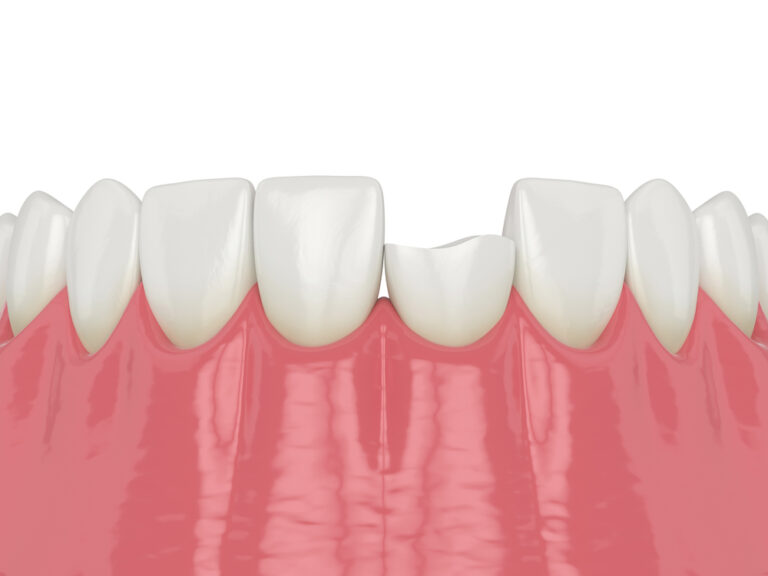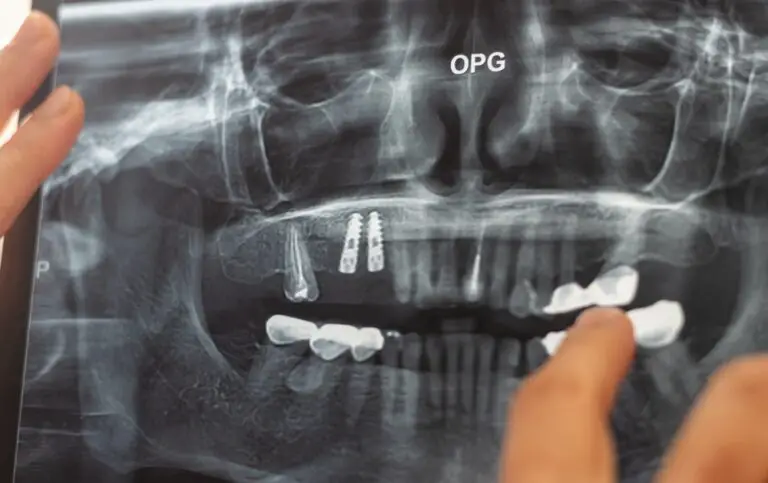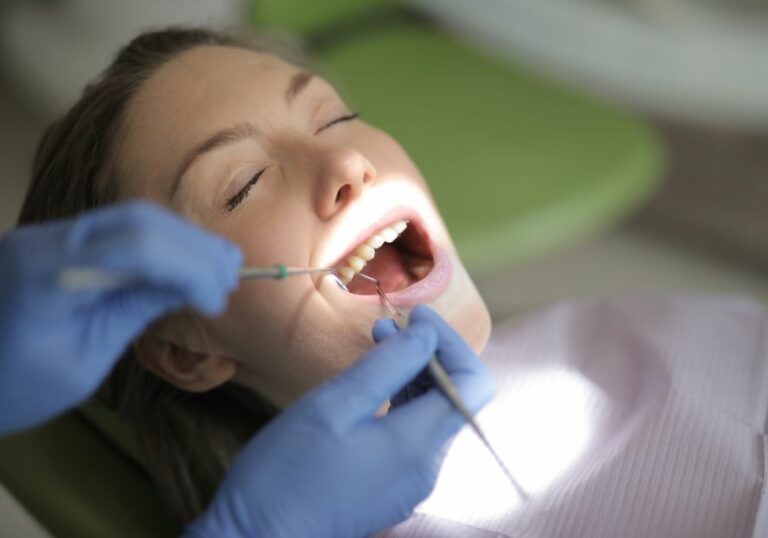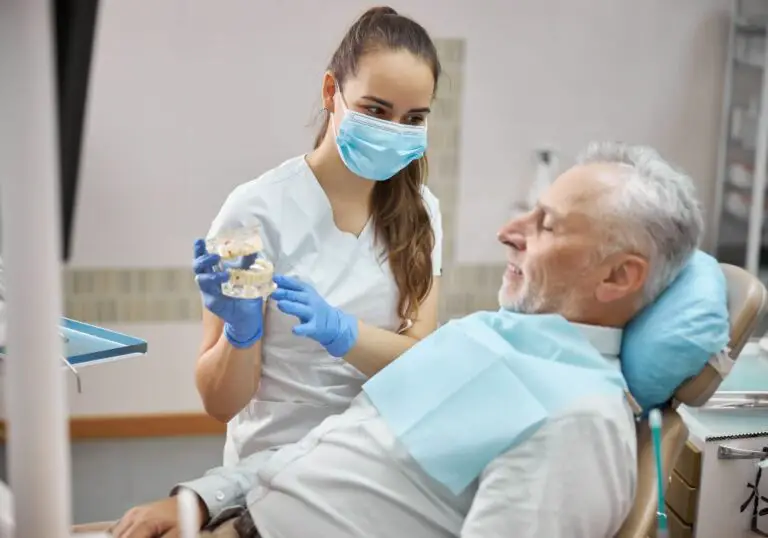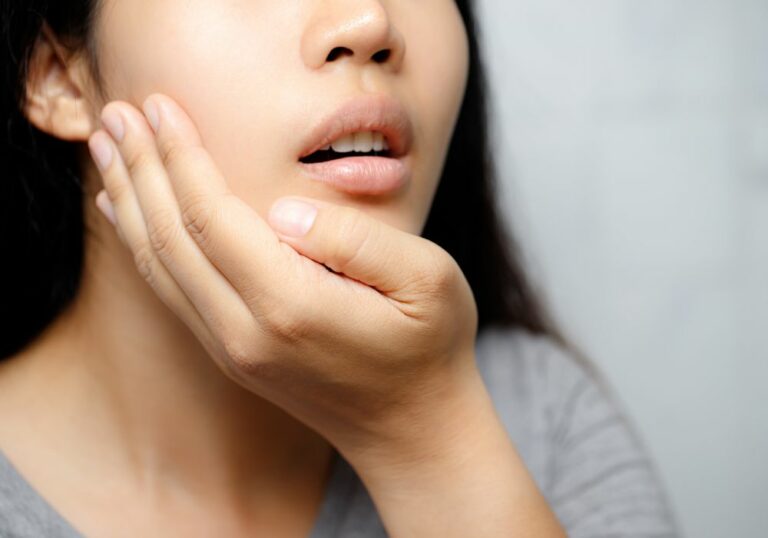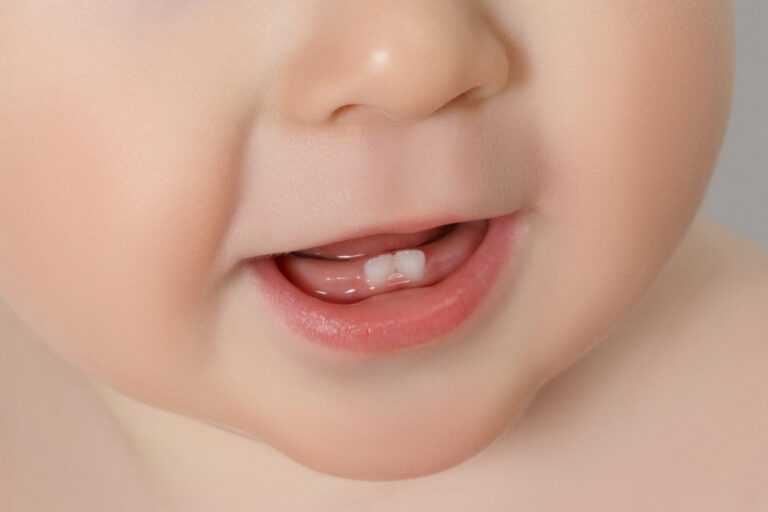Do you experience ear pain and are wondering if teeth clenching could be the cause? The answer is yes, teeth clenching, also known as bruxism, can cause ear pain. This condition occurs when you grind, gnash, or clench your teeth, either consciously or unconsciously. While it is common during sleep, some people also clench their teeth during the day when they are stressed or anxious.
One of the most common causes of ear pain due to teeth clenching is temporomandibular joint (TMJ) disorder. This condition causes inflammation and pain in the joint, as well as facial and ear discomfort. People who clench their teeth a lot when thinking hard about something or concentrating during the day often experience ear pain. If you are experiencing ear pain along with other symptoms such as jaw pain, headaches, or clicking or popping sounds when you open your mouth, it may be a sign of TMJ disorder.
Understanding Teeth Clenching
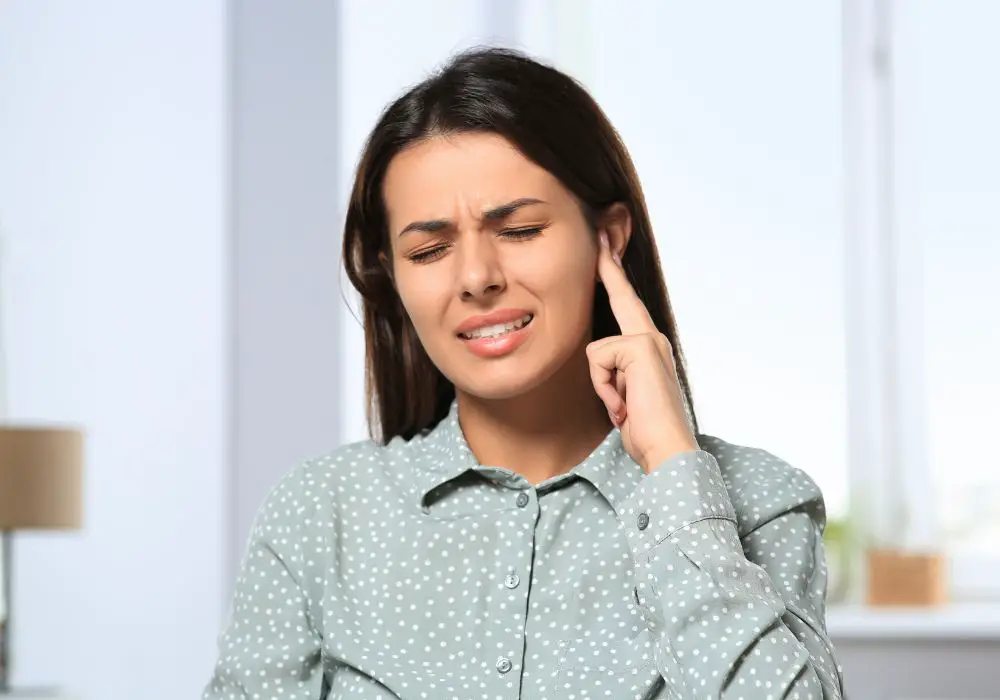
Teeth clenching, also known as bruxism, is a condition where you grind, gnash, or clench your teeth. It can happen during the day or night, and you may not even be aware that you are doing it. Teeth clenching can cause a variety of symptoms, including jaw pain, headaches, and ear pain.
There are two types of bruxism: awake bruxism and sleep bruxism. Awake bruxism is when you clench or grind your teeth during the day, and sleep bruxism is when you do it while you are sleeping. Sleep bruxism is more common and can cause more severe symptoms.
Teeth clenching can be caused by a variety of factors, including stress, anxiety, and sleep disorders. It can also be a side effect of some medications. In some cases, teeth clenching may be a symptom of an underlying medical condition, such as gastroesophageal reflux disease (GERD) or Parkinson’s disease.
If you suspect that you may be clenching your teeth, it is important to talk to your dentist or doctor. They can examine your teeth and jaw and help you determine the cause of your symptoms. In some cases, your dentist may recommend a mouthguard to protect your teeth from damage caused by teeth clenching.
Overall, teeth clenching can be a frustrating and uncomfortable condition, but there are treatments available to help manage the symptoms. By understanding the causes and symptoms of teeth clenching, you can take steps to protect your teeth and alleviate your discomfort.
Link Between Teeth Clenching and Ear Pain
Teeth clenching, also known as bruxism, is a common condition that affects many people. It can occur during the day or at night while you sleep. If you suffer from bruxism, you may experience ear pain or discomfort, among other symptoms.
When you clench your teeth, the muscles in your jaw become tense and can cause pain in the surrounding areas, including your ears. Additionally, teeth clenching can lead to temporomandibular joint (TMJ) disorder, which is a condition that affects the joint that connects your jawbone to your skull. TMJ disorder can also cause ear pain.
According to the Mayo Clinic, sleep bruxism is considered a sleep-related movement disorder. As a result, it can disrupt your sleep and lead to other health problems. If you experience ear pain or discomfort, it is essential to talk to your healthcare provider to determine the underlying cause.
In some cases, ear pain caused by teeth clenching can be managed with self-care measures, such as stress reduction techniques, avoiding caffeine and alcohol, and practicing good sleep hygiene. However, if your ear pain persists or is severe, your healthcare provider may recommend other treatments, such as mouthguards, medications, or physical therapy.
In summary, teeth clenching can cause ear pain or discomfort, and it is essential to talk to your healthcare provider to determine the underlying cause. Self-care measures can help manage ear pain caused by teeth clenching, but other treatments may be necessary if the pain persists or is severe.
Anatomy of the Jaw and Ear
To understand the relationship between teeth clenching and ear pain, it’s important to know the basic anatomy of the jaw and ear.
The temporomandibular joint (TMJ) is the joint that connects the jawbone to the skull. It’s a complex joint that allows for a wide range of movement, including up and down, side to side, and forward and backward. The TMJ is surrounded by muscles, ligaments, and tendons that work together to control jaw movement.
The ear is made up of three parts: the outer ear, the middle ear, and the inner ear. The outer ear consists of the visible part of the ear and the ear canal. The middle ear is separated from the outer ear by the eardrum and contains the three tiny bones that transmit sound from the eardrum to the inner ear. The inner ear is responsible for hearing and balance and contains the cochlea and the semicircular canals.
When you clench your teeth, the muscles that control jaw movement contract, putting pressure on the TMJ. This can cause pain in the jaw joint and the surrounding muscles. In some cases, the pain can radiate to the ear, causing ear pain.
The exact mechanism behind the relationship between teeth clenching and ear pain is not fully understood. However, it’s believed that the muscles that control jaw movement and the muscles that control ear movement are closely connected. When the muscles in the jaw are overworked, it can cause tension in the muscles of the ear, leading to ear pain.
It’s important to note that not all ear pain is caused by teeth clenching. There are many other conditions that can cause ear pain, including ear infections, sinus infections, and TMJ disorders. If you’re experiencing ear pain, it’s important to see a healthcare provider to determine the underlying cause and receive appropriate treatment.
Symptoms of Teeth Clenching Related Ear Pain
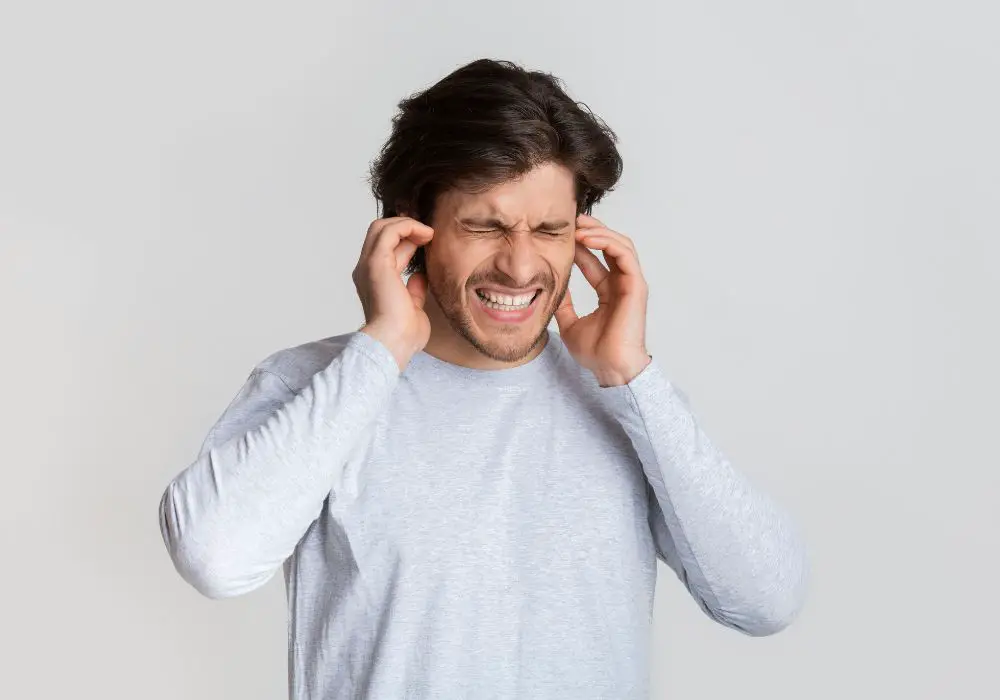
If you are experiencing ear pain, it may be a result of teeth clenching. Here are some symptoms to look out for:
- Pain in the ear or ears
- A feeling of fullness in the ear
- Ringing or buzzing in the ear
- Dizziness or vertigo
- Headaches
- Pain or tenderness in the jaw or face
Teeth clenching can cause a lot of tension in the muscles of the jaw and face, which can then lead to pain and discomfort in the ears. If you notice any of these symptoms, it is important to seek medical attention to determine the cause of your ear pain.
In addition to ear pain, teeth clenching can also cause other dental problems such as tooth sensitivity, cracked or chipped teeth, and gum recession. It is important to address teeth clenching as soon as possible to prevent further damage to your teeth and overall oral health.
If you suspect that you may be clenching your teeth, talk to your dentist or doctor about possible treatments such as a mouthguard or relaxation techniques to help alleviate the tension in your jaw muscles.
Causes of Teeth Clenching
Teeth clenching, also known as bruxism, can have various causes. Here are some of the most common factors that can lead to teeth clenching:
- Stress and anxiety: One of the most common causes of teeth clenching is stress and anxiety. When you are stressed or anxious, you may clench your teeth unconsciously, especially during sleep.
- Misaligned teeth: Misaligned teeth can also cause teeth clenching. When your teeth do not fit together properly, your jaw muscles have to work harder to bring your teeth together, which can lead to clenching.
- Medications: Some medications, such as antidepressants, can cause teeth clenching as a side effect.
- Sleep disorders: Sleep disorders, such as sleep apnea, can also cause teeth clenching. When you have a sleep disorder, your body may try to keep your airway open by clenching your teeth.
- Lifestyle factors: Lifestyle factors, such as smoking, excessive alcohol consumption, and caffeine intake, can also contribute to teeth clenching.
If you are experiencing teeth clenching, it is important to identify the underlying cause so that you can address it effectively. Talk to your dentist or doctor to determine the cause of your teeth clenching and develop a treatment plan that works for you.
Impact of Teeth Clenching on Ear Health
Teeth clenching, also known as bruxism, is a condition where you unconsciously clench your teeth when you’re awake or grind them during sleep. While teeth clenching is often associated with dental problems, it can also have an impact on your ear health.
One of the most common symptoms of teeth clenching is ear pain. This pain is usually caused by the pressure that is exerted on the temporomandibular joint (TMJ) when you clench your teeth. The TMJ is located just in front of the ear, and when it is under pressure, it can cause pain in the ear as well as other parts of the head and face.
Teeth clenching can also lead to tinnitus, which is a ringing or buzzing sound in the ears. This is because the pressure on the TMJ can affect the muscles and nerves in the ear, leading to tinnitus.
In addition to ear pain and tinnitus, teeth clenching can also cause vertigo, which is a feeling of dizziness or spinning. This is because the pressure on the TMJ can affect the inner ear, which is responsible for balance and spatial orientation.
To prevent teeth clenching from impacting your ear health, it is important to seek treatment for bruxism. This may include wearing a mouthguard at night to prevent grinding, practicing stress-reduction techniques, and seeking dental treatment for any underlying dental problems that may be contributing to the condition.
Overall, teeth clenching can have a significant impact on your ear health. If you are experiencing ear pain, tinnitus, or vertigo, it is important to seek treatment for bruxism to prevent further damage to your ear health.
Prevention and Treatment Options
If you are experiencing ear pain due to teeth clenching or grinding, there are several prevention and treatment options available.
Lifestyle Changes
Making some simple lifestyle changes can help reduce the frequency and severity of teeth clenching and grinding, thereby reducing the associated ear pain. Here are some tips:
- Reduce stress: Stress is a common cause of teeth clenching and grinding. Try to reduce stress by practicing relaxation techniques such as deep breathing, meditation, or yoga.
- Avoid caffeine: Caffeine can exacerbate teeth clenching and grinding. Limit your intake of coffee, tea, and other caffeinated beverages.
- Avoid alcohol: Alcohol can also worsen teeth clenching and grinding. Limit your alcohol intake or avoid it altogether.
- Get enough sleep: Lack of sleep can increase stress levels and exacerbate teeth clenching and grinding. Aim for 7-8 hours of sleep per night.
Medical Interventions
If lifestyle changes are not enough to alleviate your ear pain, medical interventions may be necessary. Here are some options:
- Night guards: A night guard is a custom-fitted device that fits over your teeth and prevents them from grinding together. This can help reduce the associated ear pain.
- Botox injections: Botox injections can be used to relax the muscles responsible for teeth clenching and grinding. This can help reduce the frequency and severity of these behaviors and alleviate ear pain.
- Medications: Certain medications, such as muscle relaxants or antidepressants, may be prescribed to alleviate teeth clenching and grinding and associated ear pain.
It is important to consult with your dentist or healthcare provider to determine the best prevention and treatment options for your specific situation.
When to Consult a Healthcare Professional

If you experience ear pain, jaw pain, or headaches that are persistent or severe, it is important to consult a healthcare professional. While teeth clenching can cause ear pain, there are other conditions that can cause similar symptoms.
Here are some signs that you should seek medical attention:
- Pain that lasts for more than a few days
- Pain that is getting worse over time
- Pain that is interfering with your daily life
- Difficulty opening your mouth or moving your jaw
- Swelling or tenderness in your jaw or around your ear
- Clicking or popping sounds when you move your jaw
- Changes in your hearing, such as ringing or muffled sounds
Your healthcare professional may refer you to a dentist or a specialist who can evaluate your symptoms and recommend appropriate treatment. They may also recommend imaging tests, such as X-rays or MRI scans, to help diagnose the underlying cause of your symptoms.
In some cases, ear pain and jaw pain may be caused by a dental issue, such as a tooth abscess or temporomandibular joint disorder (TMJ). Your dentist can examine your teeth and gums for signs of infection or damage, and may recommend treatments such as fillings, root canals, or orthodontic appliances.
If your symptoms are related to stress or anxiety, your healthcare professional may recommend relaxation techniques, counseling, or medication to help manage your symptoms.
Remember, it is important to seek medical attention if you are experiencing persistent or severe ear pain or jaw pain. With the right diagnosis and treatment, you can find relief from your symptoms and improve your overall quality of life.
Frequently Asked Questions
How can you relieve jaw pain from teeth grinding?
If you are experiencing jaw pain from teeth grinding, there are a few things you can try to relieve the discomfort. First, try to relax your jaw muscles by placing a warm washcloth on your face or taking a warm bath. You can also try massaging your jaw muscles or doing some gentle stretching exercises. Over-the-counter pain relievers such as ibuprofen or acetaminophen may also help alleviate the pain.
What are some TMJ ear pain relief exercises?
If you are experiencing ear pain related to TMJ disorder, there are some exercises you can do to help relieve the discomfort. Some common exercises include jaw stretches, tongue-to-roof-of-mouth exercises, and chin tucks. Your dentist or physical therapist can provide you with specific exercises tailored to your individual needs.
What are the symptoms of teeth clenching pain?
Teeth clenching pain can manifest in a variety of ways. Some common symptoms include jaw pain, headaches, earaches, and tooth sensitivity. You may also experience difficulty opening your mouth or a clicking or popping sound when you do so.
How long does teeth grinding pain typically last?
The duration of teeth grinding pain can vary depending on the severity of the condition and the individual. In some cases, the pain may be temporary and resolve on its own within a few days. In more severe cases, the pain may persist for several weeks or months and require professional treatment.
What are some ways to get rid of TMJ ear fullness?
If you are experiencing ear fullness related to TMJ disorder, there are a few things you can try to alleviate the discomfort. First, try to relax your jaw muscles by placing a warm washcloth on your face or taking a warm bath. You can also try massaging your jaw muscles or doing some gentle stretching exercises. Over-the-counter pain relievers such as ibuprofen or acetaminophen may also help alleviate the pain.
What does ear pain from clenching feel like?
Ear pain from clenching can feel like a dull ache or a sharp stabbing pain. You may also experience a feeling of fullness or pressure in the ear. The pain may be constant or intermittent and may worsen when you move your jaw or chew food.

